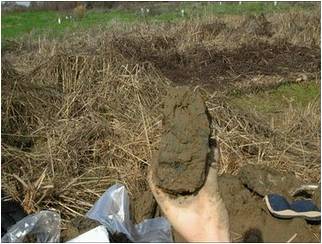Difference between revisions of "Practitioner's Tool / Seasonally High Groundwater"
From Akvopedia
m (Winona moved page Practitioner's Tool / Step 4: Seasonally High Groundwater to Practitioner's Tool / Seasonally High Groundwater without leaving a redirect) |
|||
| Line 5: | Line 5: | ||
[[Groundwater for Site Evaluation| More information on Groundwater for Site Evaluation]] | [[Groundwater for Site Evaluation| More information on Groundwater for Site Evaluation]] | ||
| − | [[Practitioner's Tool / | + | ''[[Practitioner's Tool / Slope and Topography|Proceed to Step 5: Slope and Topography]]'' |
Revision as of 21:16, 22 November 2016
Use the test holes excavated in Step 2 to identify signs of seasonally high groundwater. The signs may include soil mottling (color patterns in the soil as shown in the photo) or standing water in the test hole. The depth of groundwater is very important when considering sites for on-site effluent leaching. If groundwater is too high, it may result in a direct conduit between the leaching trenches and drinking water supplies. Additionally, high groundwater conditions require special construction techniques when installing tanks and pipelines.

